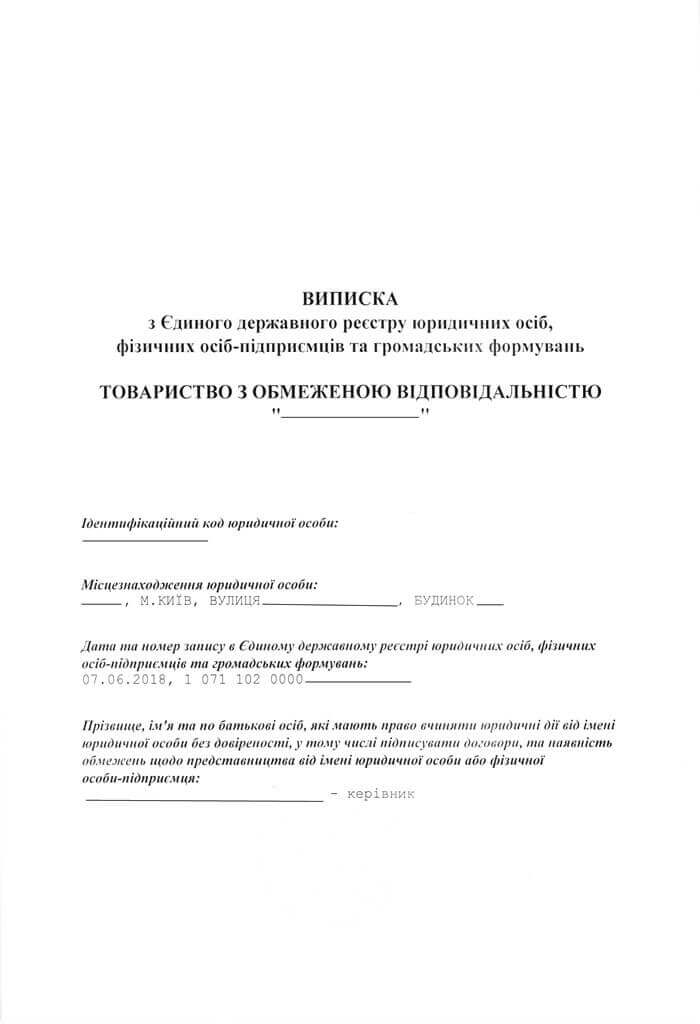Financing of a Ukrainian company by a non-resident founder
Cost of services:
Reviews of our Clients
The main goal of entrepreneurship is to make a profit. Every owner, establishing a company or investing in the existing business, clearly understands:
- the strategy and goal of the business;
- the benefit of the investment that it will receive as an owner.
In this article we will talk about depositing money, because we are interested in direct cash financing of the company, both at the start of the business, and, if necessary, in the process of its active operation.
Ways of financing the company by a non-resident owner
When a startup is not yet able to sustain its operations with cash flow from its core business or a new company project requires raising additional cash, the company can be financed by the following ways:
- ownerєs investments;
- attraction of additional investors to the business (sale of a % share in the authorized share capital to the investor);
- borrowed repayable funds (e.g., a loan);
- targeted financing (e.g. grants).
The life cycle of a company is always in the form of a growth-decline diagram. To correct this diagram, resources, including monetary resources, are needed to keep the company from lingering in the decline stage, and to provide a “boost” for continuous growth.
Based on the above, we can identify the main causes of cash shortages in the company:
- a newly established company that has not had time to gain sufficient market share and profit, which is further reinvested;
- the creation of an idea for a new project that requires additional fundraising;
- force majeure situation.
If the owners see no need to raise external funding, they can use their own funds to keep the business running. There are several options:
- increasing the authorized share capital;
- granting of non-repayable financial assistance;
- granting of repayable financial assistance.
You may also like: How Does Automation and Robotization of Accounting Work for a Company
Increasing the authorized ірфку capital. Which of the ways to apply to get the maximum benefit?
If a company has a cash gap or accumulated accounts payable (which must be repaid as soon as possible), it is more efficient to provide financial assistance (repayable or irrevocable).
If the purpose of financing is not only to replenish working capital, but also to increase creditworthiness, liquidity and solvency, then we recommend increasing your authorized share capital.
Let’s elaborate on each method.
Increase in the authorized share capital
The authorized share capital may be increased only after all members have fully paid in their contributions.
The authorized share capital may be increased by using external sources of financing (monetary and in-kind contributions of the founders) and at the expense of changes in the capital structure (reinvestment of retained earnings, reserve and additional capital).
The procedure of increasing the authorized share capital is as follows:
- holding a meeting of the members, at which they decide on the amount of the authorized share capital increase and the shares of the members;
- drawing up the minutes of the members by the results of the meeting (subject to notarial certification);
- introduction of changes into the charter of the company and the Unified State Register of Legal Entities;
- transfer of funds by a non-resident founder to the account of the company.
You may also like: Accounting and Taxation of Grants for Residents of Ukraine
Irrevocable financial assistance
Irrevocable financial assistance is financial or material assistance (including a gift) that does not provide for a refund. The charge of interest for the use of such assistance is also not provided.
This assistance is provided on the basis of the agreement, which is subject to registration in the NBU system (the NBU Integrated Information System).
Agreements shall be registered through the servicing bank of the resident. When drawing up the agreement we agree on the draft of the agreement with the bank employees beforehand.
The bank has the right to request confirmation of the funds transfer from the non-resident founder, since the financial assistance agreement is subject to financial monitoring.
For resident’s accounting purposes, the amount of irrevocable financial assistance received is to be attributed to income.
In resident’s tax accounting, the amount of irrevocable financial assistance received is also included in income and is taxable:
- for taxpayers on the general system of taxation – 18% of income tax, according to clause 134.1 of the Tax Code of Ukraine.
- for single taxpayers – the tax rate corresponding to the taxpayer, according to clause 292.1 of the Tax Code of Ukraine.
For VAT purposes, irrevocable financial assistance is not subject to taxation.
The procedure for granting irrevocable financial assistance is as follows:
- Drawing up an agreement on the provision of irrevocable financial assistance;
- Coordination of the agreement with the resident’s bank;
- Registration of the agreement in the NBU Integrated Information System (carried out by the resident bank);
- Transfer of funds by a non-resident owner.
You may also like: Accounting for the Costs of New Product Development in Ukraine
Refundable financial assistance
Refundable financial assistance is money that is provided to the company for use with the obligation to return it. This agreement does not need to be registered by the NBU.
Please note! Financial assistance must be in monetary form only, the refundable financial assistance may not be granted in property.
The granting of the refundable financial assistance does not foresee charging any interest for the use of the money. Accrual of interest for using the funds shall be allowed only to the relevant financial institutions, licensed to provide financial services.
The repayment period must be specified in the repayment agreements and shall not exceed 365 days. The repayment period can be extended by means of additional agreements (their number is not limited).
The bank has the right to request confirmation of the funds transfer from the non-resident founder, since the financial assistance agreement is subject to financial monitoring.
In accounting of the resident, the amount of refundable financial assistance shall be recognized as an asset (in the balance sheet item “Cash”) and liability (in the item “Other short-term debts”). refundable financial assistance is not included in income.
In resident’s tax accounting, the amount of refundable financial assistance received is not included in the company’s income and is not subject to income tax or unified tax.
Please note! If the repayment period is violated (not repaid within 365 days, additional agreement to extend the deadline is not signed), such financial assistance is treated as non-repayable and taxed according to the rules of taxation of irrevocable financial assistance.
The procedure for granting refundable financial assistance:
- Execution of the agreement on the provision of repayable financial assistance;
- transfer of funds by a non-resident owner to a resident;
- exchange rate revaluation of the debt balance as of the balance sheet date;
- compliance with the terms of return of the financial aid and/or drawing up additional agreements to extend the terms of return of the financial aid;
- repayment of the financial aid to the non-resident.
Please note! If you intend to conclude a repayable financial assistance agreement with a repayment period of more than 1 year (365 days), you must remember that in this case there is a mandatory application of discounting of interest-free financial assistance. The essence of discounting is equating the value of money to its real value in the future.
If you want to get answers to any legal or accounting questions related to business processes in Ukraine – don’t hesitate to contact us.
The cost of foreign business registration in Ukraine here.
Our clients








